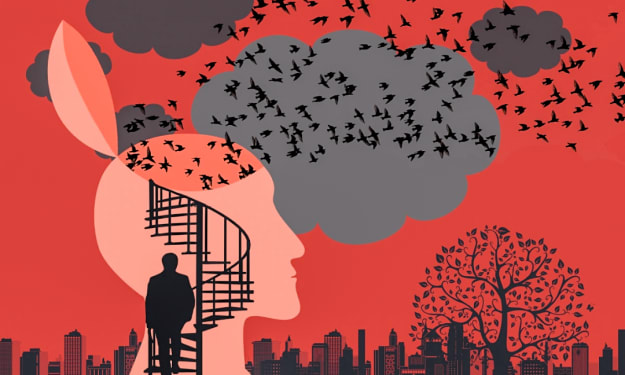
Have you ever wondered what happens after you pass away?
Despite our modern scientific understanding of death, many still hold onto the belief in an afterlife. In a survey conducted in the UK in 2014, nearly 60 percent of respondents expressed a belief in some form of life after death.
Similarly, in the U.S., a Pew Research study in 2015 revealed that 72 percent of Americans believe in heaven as a place of eternal reward for those who have lived good lives, while 54 percent believe in hell as a place of eternal punishment for those who have not repented for their sins. Join us in this episode of the Infographics Show as we explore the question: What really happens when you die?
It seems that many people hold onto the idea that after death, we may find ourselves in a heavenly paradise or face eternal damnation in hell if we have not lived according to the moral standards of our faith.
Let's begin by exploring the realm of empirical realism and what truly occurs within our bodies when we pass away.
Physicians determine death by observing the cessation of the heartbeat and the absence of any electrical activity in the brain. Once brain death occurs, it signifies the end of life, although machines can sustain the body for a short while longer.
Another form of death is known as cardiac death, where the heart ceases to beat, causing the blood to no longer circulate throughout the body.
Now, here's something intriguing and even marvelous. Individuals who have experienced cardiac death but were revived have reported being conscious of their surroundings during that time. Some have even described walking towards a radiant light, recounting their near-death experiences.
While it is possible to be revived from what we refer to as clinical death, there is only a limited window of opportunity, typically lasting around 4-6 minutes.
However, let's imagine that you reach the light and transcend beyond it; this marks what we call biological death. It's game over, the final whistle, and you become as lifeless as a dodo.
This is where things start to get a little undignified, but hey, who cares? You're no longer among the living. Once you've officially departed, your muscles relax, including your sphincter. So that triple Whopper and large fries you had for lunch? Well, they'll make an unexpected appearance. And let's not forget about the gas that might escape, causing quite a stink.
Oh, and gentlemen, brace yourselves because you might even experience ejaculation postmortem. As for the ladies, if you were pregnant at the time of your demise, there's a slim chance you might give birth even after death. It's known as a "coffin birth," but don't worry, it's not a common occurrence. Instead of the usual pushing, it's the gases in your abdomen that do the job of bringing the newborn into the world.
As your body rids itself of its trapped contents, you might hear some interesting sounds escaping from your mouth as air is released. Nurses and those who work closely with deceased individuals have often reported hearing moans and groans that sound eerily alive.
Your body may twitch, but don't be fooled - it's just muscle contractions, not a sign of life. If you were to die lying on your stomach, you might even get an erection as the blood pools in that area. This phenomenon, known as "livor mortis," is what causes certain parts of your body to turn that dark purple color you've seen on TV. These are the fascinating changes that occur shortly after death. As your blood stops circulating, your body will start to cool down, a process called "algor mortis" or "death chill." Eventually, your body will reach the same temperature as its surroundings. Rigor mortis will set in within a few hours, making your muscles stiff due to the influx of calcium. Without blood flow, your cells will break down, leading to bacterial growth and decomposition. While it may appear that your hair and nails are growing, it's actually your skin receding. Your skin will also loosen, forming blisters on your body. The final stage is putrefaction, where bacteria and microorganisms begin to feast on your remains.
Prepare yourself, for the stench that awaits you in the afterlife is beyond your wildest imagination. A single individual once likened it to the putrid combination of rotten eggs, feces, and a neglected toilet left out for an entire month, multiplied by a thousand. It is an unholy odor that defies description.
As time passes, everything that was once soft and supple will transform into a liquefied state, while elements like bones, cartilage, and hair stubbornly retain their strength. Even before your body is laid to rest, the decomposition process has already begun, gradually breaking you down.
However, if you choose to be embalmed and buried, the decomposition process may be considerably slower.
About the Creator
Ayesha
Like to write for fun while investigating and exploring the world





Comments
There are no comments for this story
Be the first to respond and start the conversation.